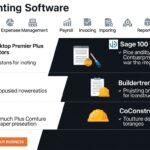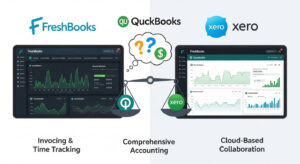
The Best CRM and Email Marketing Software: Boost Your Sales & Customer Engagement
Customer Relationship Management (CRM) and email marketing software represent critical tools for modern business operations. CRM systems manage all customer interactions and data, while email marketing platforms handle targeted communication. When combined, these systems create a powerful synergy, ensuring no customer detail is lost and every communication is relevant. This integration addresses the core problem of fragmented customer data and inefficient outreach, transforming how businesses engage with their audience.
Integrating CRM and email marketing offers significant advantages. Businesses gain the ability to send personalized emails, improve lead nurturing processes, and increase conversion rates. This unified approach also strengthens customer retention by providing a consistent and tailored experience across all touchpoints. Such a system ensures communication aligns perfectly with a customer’s journey and needs.
Selecting the appropriate software from a crowded market presents a challenge for many businesses. Numerous solutions offer varying features, pricing, and integration capabilities. This guide explores leading options and essential functionalities, helping you identify the best tools to enhance your sales processes and customer engagement strategies.
Understanding the Power of Integrated CRM and Email Marketing
This section explains the foundational knowledge for readers, detailing the critical importance of these two tools when used together.
What is CRM Software?
Customer Relationship Management (CRM) software provides a centralized system for managing all company interactions and relationships with current and potential customers. Its purpose extends beyond simple contact storage. CRM helps businesses improve customer service relationships and assist in client retention. Core functionalities include detailed contact management, tracking sales opportunities through a pipeline, and generating reports on sales performance.
CRM systems compile customer data from various sources, including websites, phone calls, and social media. This comprehensive view allows sales and marketing teams to understand customer behaviors and preferences. The software streamlines sales processes, automates administrative tasks, and offers insights into customer engagement levels.
What is Email Marketing Software?
Email marketing software is a digital tool designed for creating, sending, and tracking email campaigns. This software allows businesses to communicate directly with their audience through newsletters, promotions, and transactional messages. Its primary goal is to foster customer loyalty and drive sales. The software often includes features for list segmentation, allowing targeted messaging based on subscriber characteristics.
Key functionalities of email marketing platforms include drag-and-drop editors for designing visually appealing emails. Users can create email automation sequences, such as welcome series or follow-ups. The software tracks campaign performance metrics, including open rates, click-through rates, and conversions. These tools help optimize future email strategies.
The Synergy: How They Work Together for Maximum Impact
The true power of CRM and email marketing emerges when these two systems integrate. CRM data, which includes purchase history, interactions, and preferences, directly informs and fuels highly personalized email campaigns. This ensures that every email sent is relevant to the recipient’s specific situation. Email engagement data, such as opens and clicks, then flows back into the CRM, enriching the customer profile with valuable insights.
This two-way data flow allows businesses to automate highly specific customer journeys. For example, a customer who views a product page but does not purchase can receive a targeted email campaign through the email marketing system, triggered by CRM data. Common integrations involve syncing contact lists, automating email sends based on CRM actions, and updating lead scores within the CRM based on email engagement. This unified approach maximizes campaign effectiveness and sales efficiency.
Key Features to Look For in CRM and Email Marketing Software
This section outlines practical considerations for software selection. Readers must understand the essential functionalities required for success.
Core CRM Functionalities
Effective CRM software provides essential tools for managing customer relationships and sales operations.
- Contact & Lead Management: Organizing customer and prospect information, including contact details, interaction history, and lead status.
- Sales Pipeline & Deal Tracking: Visualizing sales opportunities, moving deals through various stages, and forecasting revenue. This helps sales teams prioritize efforts.
- Task & Activity Management: Assigning and tracking tasks, scheduling meetings, and logging calls to ensure consistent follow-up. This keeps teams organized.
- Reporting & Analytics: Generating custom reports on sales performance, customer trends, and team productivity. Data insights drive strategic decisions.
Essential Email Marketing Capabilities
Robust email marketing platforms offer features critical for campaign execution and analysis.
- Email Automation: Setting up automated email sequences for specific triggers, such as welcome messages for new subscribers or abandoned cart reminders. This saves time and ensures timely communication.
- List Segmentation & Management: Dividing email subscribers into targeted groups based on demographics, behavior, or purchase history. This allows for highly relevant messaging.
- Campaign Performance Tracking: Monitoring key metrics like open rates, click-through rates, and conversion rates for each email campaign. Data informs optimization efforts.
- A/B Testing: Experimenting with different subject lines, content, or calls-to-action to determine what resonates best with the audience. This improves campaign effectiveness.
- Responsive Email Design: Creating emails that display correctly and look appealing on any device, including desktops, tablets, and mobile phones. This ensures a consistent user experience.
Integration Capabilities
Seamless integration between CRM and email marketing components is paramount for maximizing efficiency and data accuracy.
- Native vs. Third-Party Integrations: Some platforms offer built-in email marketing tools (native), while others rely on connections to external email services (third-party). Native integrations often provide a more unified experience.
- Data Synchronization: Ensuring contact information, engagement metrics, and other crucial data update consistently between the CRM and email marketing system. Real-time synchronization is ideal for immediate action.
- API Access for Customization: The ability to connect with other business tools through an Application Programming Interface (API) allows for tailored workflows and extended functionality. This offers flexibility for unique business needs.
Top CRM and Email Marketing Software Options for Businesses
This section provides an overview of specific software solutions, categorized to assist businesses in making targeted recommendations. Each entry includes brief pros and cons.
All-in-One CRM & Email Marketing Platforms
These solutions provide both CRM and robust email marketing features natively within a single platform.
- HubSpot CRM
- Strengths: Features a user-friendly interface. Offers a comprehensive free CRM tier, making it accessible for startups. Provides strong automation capabilities across sales and marketing.
- Considerations: Costs can rise significantly at higher subscription tiers as businesses scale. Some advanced features require premium plans.
- ActiveCampaign
- Strengths: Known for powerful automation and advanced segmentation features. Designed with a combined CRM and email marketing focus, offering deep integration.
- Considerations: The platform can have a steeper learning curve for new users due to its extensive features. Pricing may become complex for very large contact lists.
CRM Platforms with Strong Email Marketing Integrations
These leading CRM solutions excel in customer management and connect effectively with popular email marketing tools.
- Salesforce Sales Cloud + Marketing Cloud (or integration with Mailchimp/Constant Contact)
- Strengths: Offers enterprise-grade CRM capabilities suitable for large organizations. Provides extensive customization options to fit specific business processes. Benefits from a vast app ecosystem.
- Considerations: Comes with a high cost, especially for smaller businesses. Implementation and setup can be complex, requiring specialized expertise.
- Zoho CRM + Zoho Campaigns
- Strengths: Delivers an affordable solution within a comprehensive suite of business applications. Provides good value for money, combining many tools under one roof.
- Considerations: The user interface (UI) may feel less modern or intuitive compared to some competitors. Integration with non-Zoho products can be less seamless.
Email Marketing Platforms with Integrated CRM Features
These platforms are primarily known for email marketing but offer developing or integrated CRM functionalities.
- Mailchimp
- Strengths: Highly popular for email marketing due to its intuitive interface. An excellent choice for small businesses and e-commerce operations.
- Considerations: Its CRM capabilities are more basic and less comprehensive compared to dedicated CRM systems. Advanced sales pipeline management is limited.
- Constant Contact
- Strengths: Features a user-friendly design, making it easy for beginners. Strong focus on supporting small businesses with dedicated tools and resources. Offers good customer support.
- Considerations: Provides less advanced automation and segmentation options compared to more specialized marketing automation platforms. Limits on customization exist.
How to Choose the Right Software for Your Business
This section offers a step-by-step guide to help readers make an informed decision based on their unique requirements.
Assess Your Business Needs and Goals
Begin by understanding your specific operational pain points and objectives. List your top three sales and marketing challenges. For example, you might struggle with lead qualification or customer retention. Define your primary goals for using integrated software, such as increasing lead conversion by 15% or improving customer retention by 10% within the next year. This clarity directs your search.
Evaluate Features vs. Budget
Balance the desired functionalities with your financial constraints. The average return on investment (ROI) for CRM implementations often exceeds $8 for every dollar spent, highlighting its potential value. Prioritize your “must-have” features that directly address your critical challenges. Then, identify “nice-to-have” features that could enhance operations but are not strictly essential within your budget.
Consider Ease of Use and Support
User-friendliness and available customer assistance are vital for successful software adoption. As noted by industry experts, software is only effective if people use it. A complex system will hinder your team’s productivity and overall adoption. Sign up for free trials of top contenders and test key workflows with your team. Evaluate the quality of customer support, training resources, and community forums during your trials.
Integration with Existing Tools
Ensure compatibility with your current technology stack. Check for native integrations with your essential business tools, such as accounting software or e-commerce platforms. If native options are unavailable, investigate compatibility with integration platforms like Zapier. Seamless data flow between all your systems prevents manual data entry and reduces errors.
Maximizing Your CRM and Email Marketing Software Investment
This section focuses on post-selection strategies to ensure successful software implementation and ongoing value.
Effective Data Management and Segmentation
Clean data is the foundation of successful campaigns. Regularly clean and update your contact database to remove duplicates and stale entries. A B2B company, for instance, used CRM data to segment leads by industry and company size for a targeted product launch, resulting in a 20% increase in qualified leads. Precise segmentation ensures messages reach the right audience.
Crafting High-Converting Email Campaigns
Create engaging and effective emails to drive action. Personalize email subject lines and content using merge tags that pull data directly from your CRM. For example, addressing a customer by name significantly increases engagement. Always use clear calls-to-action (CTAs) in every email, guiding recipients toward the next desired step, such as “Download the Guide” or “Shop Now.”
Leveraging Automation for Efficiency
Automation saves time and enhances customer journeys. Map out automated workflows for common customer touchpoints. An e-commerce business, for instance, deployed an abandoned cart automation sequence, sending a series of emails to customers who left items in their cart. This strategy recovered 18% of otherwise lost sales. Automation ensures timely and relevant follow-ups.
Analyzing Performance and Iterating
Data analysis is crucial for continuous improvement. Personalized emails often see an increase of 25% in open rates and 14% in click-through rates. Schedule regular reviews of your email marketing and CRM reports. Identify trends in customer behavior, evaluate campaign effectiveness, and pinpoint areas for improvement. Use these insights to refine your strategies and achieve better results.
Conclusion
Combining CRM and email marketing software offers a transformative approach to business growth. These integrated platforms streamline operations, personalize customer interactions, and significantly enhance sales and engagement. By unifying customer data and communication channels, businesses gain a competitive edge in today’s market.
Choosing the right software demands careful consideration of your business needs, budget constraints, and feature requirements. A strategic approach to implementation, prioritizing ease of use and seamless integration, ensures long-term success. The proper tools provide a robust foundation for building stronger relationships and driving revenue.
Invest in the right CRM and email marketing solution to unlock your business’s full potential. Empower your teams with the ability to connect deeply with customers, optimize every interaction, and achieve sustainable growth. This investment directly supports stronger customer relationships and drives overall business success.










